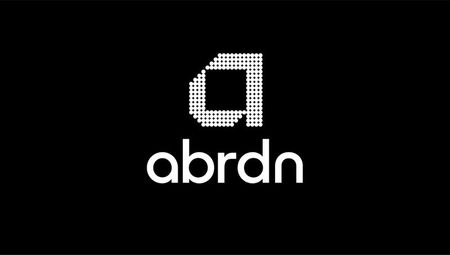The value of vowels: Can Abrdn keep its legacy with its rebrand?

With corporate and financial institutions, it is vital that all aspects of a brands’ communication evoke trust in that organisation, claim mind and market share, and lend gravitas and confidence to its product. The recent announcement that Standard Life Aberdeen is changing its name to Abrdn is a lesson for us all. Any serious, corporate institution needs to take time with such announcement, showcasing the full picture, story and reasons behind the new name, alongside how it plans to weave it into the future strategy.
When a name and logo is launched without this context, it runs the risk of being ripped apart (as the Abrdn name has). A visually arresting story is there for all to see on their website but that would require people to be able to find that website on a search engine, which they could struggle to do if they don’t know how to spell the name.
That said, we must also applaud organisations that are brave with their brands. Done well, and in a considered manner that taps into their audiences psyche, these become benchmarks for the whole sectors within which they operate. And it’s only when we see how the entire brand rolls out across every channel can a final judgement be made.
But sometimes, a launch or a rebrands can spark a near universal flurry of disapproval – or worse, mocking. The abrdn rebrand risks stripping away all of the company’s heritage in favour of chasing the trends of digitally enabled businesses in other sectors. Indeed, when a company has to go out of its way to explain the pronunciation of its new name, it has already lost the battle. However forward-thinking the press pack claims it to be, to those looking in it seems short-sighted and publicity driven, especially when you consider the main audience.
Some of the most well known, dynamic challenger banks and Fintech brands proudly tell the story behind their names, no matter how abstract they appear to be. Monzo, Starling, Revolut, N26, Refinitiv all have names that are either inspired by their brand values or which weave them into their strategic vision for the business. Will Abrdn be able to successfully do this by removing all the vowels from Aberdeen? It’s going to be a hard task as the contraction only serves to muddy the waters of its purpose, vision and service.
The best brand names are enduring. They need no explanation. They are name-checked with pride, by employees and customers alike. In the financial sector in particular, the name of an institution is a calling card that can be proffered as a reassurance to new clients and proof of expertise to existing ones. These institutions have built up a reputation, sometimes over hundreds of years, of delivering results in a cut-throat market, and their names have been established on the back of hard work and sharp insight.
Sometimes a new name is necessary, whether because of a sale, acquisition, merger or merely a changing market landscape. But the best brands don’t need to try too hard to be modern and dynamic. Perhaps Abrdn knew that, hence the reveal of just a logo and brand film in isolation.
Unfortunately, this tentative approach has only given people even more room to knock it. After all, how can you fully understand a new direction if you can’t see it in action? How can employees and customers envisage interacting with it in a meaningful, realistic way?
Only time will tell what its target audience – internally and externally – will make of the new brand. The company may find however that a constricted, vowel-less brand name, may not convey the clarity of message and focus it so desires.